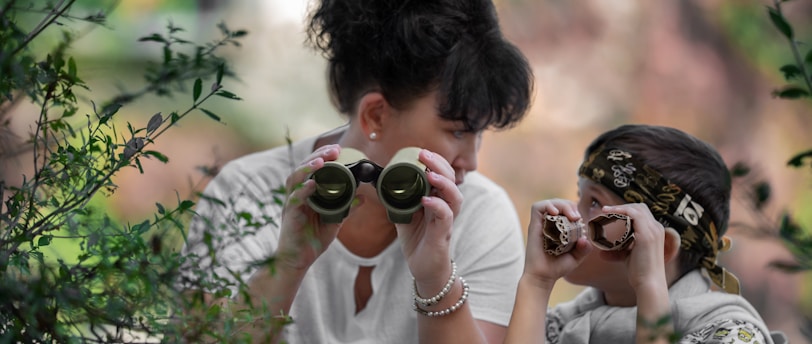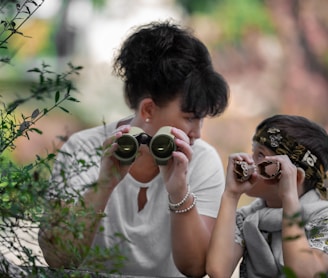
The Need For Strong Observational Skills In Developing IEPS!
SPECIAL EDUCATIONPARENTING


Before learning about special education, finding the right preschool program for my son was difficult. He needed direct adult support and a more flexible environment to get his energy out. Over the years, we first explored traditional co-op preschools.
After aging out, we moved to preschools focused on Montessori and Reggio Emilia principals. Our son not only received support in a natural environment, but we also understood what he needed to succeed by observing his interactions with his classmates.
As parents, we need to communicate our child's needs precisely, take what we see, and turn it into a support plan at the drop of a hat. Learning that observational skills are not understood intuitively and should be taught was mind-blowing.
WHAT DO I MEAN BY "OBSERVATION"?
When observing your child, you closely oversee them complete an activity or interact with a peer to gain information about their behavior and interests without biases. It helps you connect with your child deeper to understand how to create a safe and supportive environment for them to blossom.
We must often consider how we conduct an observation to keep the process simple. Here are three easy-to-follow steps to begin:
Observe your child and make notes on what is happening, what may have caused the behavior, and what happened after the conduct occurred.
Ask questions: What does this behavior mean? Is there a sensitivity to their environment that may have triggered the behavior?
You can adjust or modify your responses once you have identified their triggers and be ready to switch them up constantly.
QUESTIONS ANSWERED THROUGH YOUR OBSERVATIONS
One of the hardest things is to send our children off to school with the uncertainty of how they are doing. We must trust the school staff, teachers, and specialists to be our eyes and ears and communicate any successes and difficulties.
Unfortunately, many parents realize that our kids' school days are full of activities that your school may overlook the need to communicate your child's day to you. It does not mean that sharing isn't essential to them; they have a classroom full of students to teach, monitor, document, and communicate with.
For this reason, it is even more essential to develop observational skills at home. The key to any observation should be gathering enough information over time to answer your concerns.
Examples of questions include:
If your child is avoiding an activity or place, is this an interest to them?
How does your child respond to transitions? Do they need warnings or extra processing time?
Does your child need a structured, flexible, low-demand routine or somewhere between?
How is your child performing during tasks (gross motor, fine motor)? Are they able to keep up with their peers at the playground? How do they do with arts and crafts or other tabletop activities?
Does your child have difficulty separating from you? If so, how long does it take them to settle so you can leave?
How does your child respond and interact with other children?
DOCUMENTING YOUR OBSERVATIONS
First, you can find a simple way to document your observations that is most convenient for your family and will allow consistency throughout your day. Setting aside about 5-10 minutes to observe your child is plenty of time to document how your child's personality, interests, excitements, and difficulties shine through is more than enough time.
Next, I would also like to let you know how you responded to different situations with your child. By doing so, you may find a pattern of behavior so you can either continue or change your response based on your child's reactions.
To get you started, here is a sample of how I document observations for my children.
PRESENTING OBSERVATIONS TO YOUR IEP TEAM
A significant part of your child's IEPs consists of observations from teachers, specialists, and parents to form an individualized educational plan that will create a thriving environment to learn. Parents' most common questions are: "Well, what information is the school looking for me to share, and how do I share it?"
Under "documenting your observations," there is a free guide on how to take data needed to help partner with your school, so grab your copy. When you share this with your team, it's essential to do it in writing so you can record your conversation.
How often you discuss your observations and concerns with your team is a very personal decision. Some families will need daily communication back and forth with their team. If that is the case, create an organized home-to-school communication plan with your teachers and make copies of what you receive daily. Otherwise, I'd like to point out that checking in with your team every few weeks and at least each grading and progress monitoring period is reasonable.
WHAT CAN PARENTS DO NEXT?
By proactively communicating with your IEP team, you will likely avoid getting stuck in the wait-and-see cycle that often happens with our special education students. You are actively collecting the data needed to make decisions and help your time see the areas of concerns your child may be masking during their school day
You are the expert on your child, and now you will have the data needed to back up your observations. Make sure to continue this documentation practice, and soon it will become second nature and a way for you to prepare and be a leader at your next IEP meeting.
STAY CONNECTED!
Subscribe for free to receive the latest news and update from Jessica Beaty Consulting.
Don't worry, your information will not be shared!
